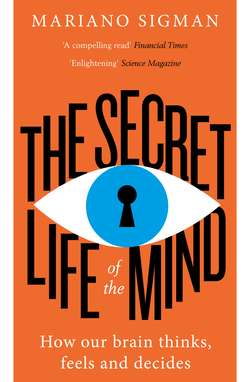Читать книгу The Secret Life of the Mind: How Our Brain Thinks, Feels and Decides - Mariano Sigman - Страница 33
Rational deliberation or hunches?
ОглавлениеOnce we have discovered that hunches and intuitions are unconscious deliberations we can proceed to a question of more practical relevance. When should we trust our hunches and intuitions and when not? For those questions that matter most to us, should we trust our hunches or our rational deliberations?
The answer is conclusive: it depends. A social psychologist, Ap Dijksterhuis, found, in an experiment that is still generating controversy, that the complexity of a decision is what dictates when it’s best to deliberate consciously or act intuitively. Dijksterhuis found that to be the rule both in ‘mock’ decisions in the lab and in real-life decisions.
In the laboratory, he constructed a game in which participants had to evaluate two options – for example, two cars – and choose which was preferable in terms of utility. Sometimes, the two alternatives only differed in price. In that case, the decision was simple: the cheaper one was better. Then the problem became progressively more complex, when the two cars varied not only in price, but in petrol consumption, safety, comfort, risk of theft, engine capability and pollution levels.
Dijksterhuis’s most surprising discovery was that when there are many elements in play, hunches are more effective than deliberation. The same pattern appears in decisions in the real world. This was observed in an experiment whereby people who had just bought toothpaste – undoubtedly one of life’s easier choices – were asked how they had made their decision. A month later, those who had pondered their decisions were more satisfied than those who hadn’t. On the other hand, they observed the opposite result when interviewing people who had just bought furniture (a complex decision, with many more variables such as price, size, quality, aesthetic appeal). Just like in the lab, those who thought less chose better.
The methodologies of these experiments are quite different, but the conclusion is the same. When we make a decision by carefully thinking over a small number of elements, we choose better if we take our time. Yet when the problem is complex, in general we make better choices by following our intuition than if we stew over it.
The conscious mind is fairly limited in size and can hold little information. Our unconscious, however, is vast. This explains why when making decisions with few variables in play – price, quality and size of a product, for example – we are best served by thinking it over before acting. In situations where we can mentally evaluate all the elements at the same time, the rational decision is more effective, and therefore better. We also can see why – when there are many more variables in play than our conscious mind can juggle at once – our unconscious, rapid, intuitive decisions are more effective, even when based on approximated calculations.
